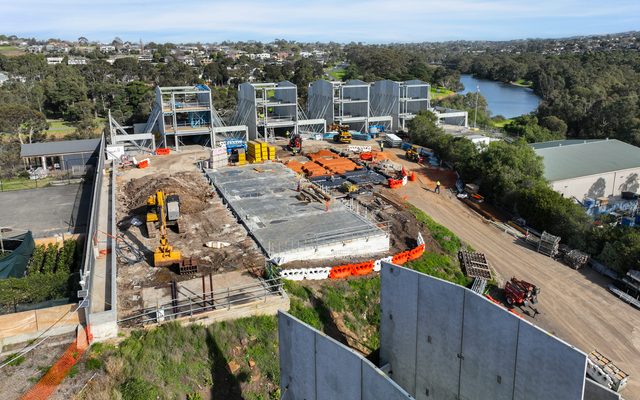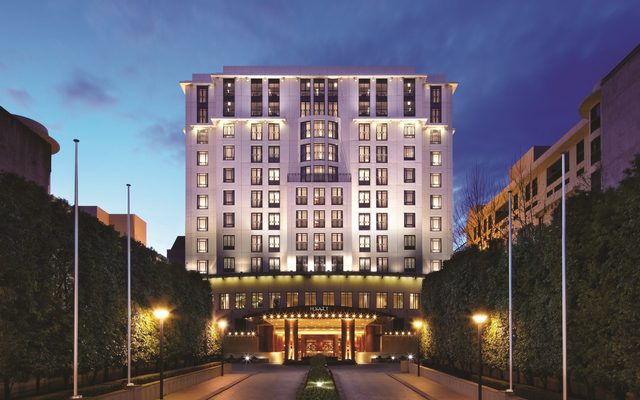This article is from the Australian Property Journal archive
GPT CEO Michael Cameron said the group is on track to deliver an EPS growth of at least 1% higher than the inflation rate or CPI for 2011.
GPT also announced a distribution of 4.2 cents for the first quarter.
Cameron said with the group’s exit from non-core assets now substantially completed, GPT is delivering on its commitment to return to Australian real estate.
In the first quarter GPT has recorded strong performances from the office, industrial and retail businesses.
The office portfolio leased 26,960 sqm of space leased, lifting occupancy rates from 96.8% at December 31 to 97.8%. Some of the highlights deals include:
· HSBC renewed a lease over 1,220 sqm at the HSBC Centre for five years.
· The Royal Bank of Canada increased its space to over 2,970 sqm at the Citigroup Centre for a 10 year period
· The Productivity Commission leased 2,817 sqm at 530 Collins St and 1,465 sqm was leased to Ceni Tex.
· The Melbourne Central office tower leased 1,453 sqm of additional space to Members Equity and Origin, and 1,529 sqm to NBN.
· At the Brisbane Transit Centre, 8,240 sqm was leased to Worley Parsons and 1,844 sqm was leased to the Department of Public Works.
Cameron said incentives are stabilising in both Sydney and Brisbane and reducing in Melbourne.
“Solid effective rental growth is forecast in GPT’s key markets as a result of increasing demand as the domestic economy benefits from a strong resources sector and an improving global economy, limited future supply and declining vacancies. Capitalisation rates continue to firm supported by increased transactional activity,” he added.
The retail portfolio showed positive signs of growth despite a cautious consumer environment. The month of March saw the strongest sales growth for the quarter with monthly specialty sales up 4.9% and total centre sales up 1.2% on the month of March last year.
Within the major retailer categories, Supermarkets showed the strongest comparable moving annual turnover (MAT) growth, up 2.9%, with Department Stores and Discount Department Stores down 1.8% and 4.7% respectively. Cinemas were the weakest performers with comparable MAT down 8.0%. The strongest performing specialty commodity groups included Mobile Phones, Eating Establishments and Shoes, Bags and Accessories. Assorted Giftware, Household Equipment and Pharmacy/Cosmetics were the weakest specialty commodity groups.
Cameron said the prospect of rising interest rates and consumers’ continuing caution around spending is expected to be the main impediments to retail sales growth throughout 2011.
“GPT remains comfortable in its expectation of 3% comparable specialty sales growth for 2011,” he forecast.
GPT has also inked the deal on approximately 50,000 sqm of space in the industrial portfolio including the Reject Shop renewing over 20,000sqm of space at Citiwest Industrial Estate in Altona North, VIC.
Cameron said tenant demand remains positive and leading indicators such as container movements have grown over the past six months.
“Demand is broadly based across the logistics, retail and manufacturing sectors and new supply is predominantly pre-leased with relatively low levels of speculative development across the major markets.
“Total new supply in 2011 looks like surpassing the level recorded in 2010, however remains low compared to the average over the past decade,” he continued.
Cameron said industrial average rents continue to stabilise or have increased marginally during last quarter as vacancy rates remain low (circa 5%) across investment grade property. Investment yields are stable and expected to tighten moderately by between 25 – 50 basis points over the next 1-3 years.
Australian Property Journal



